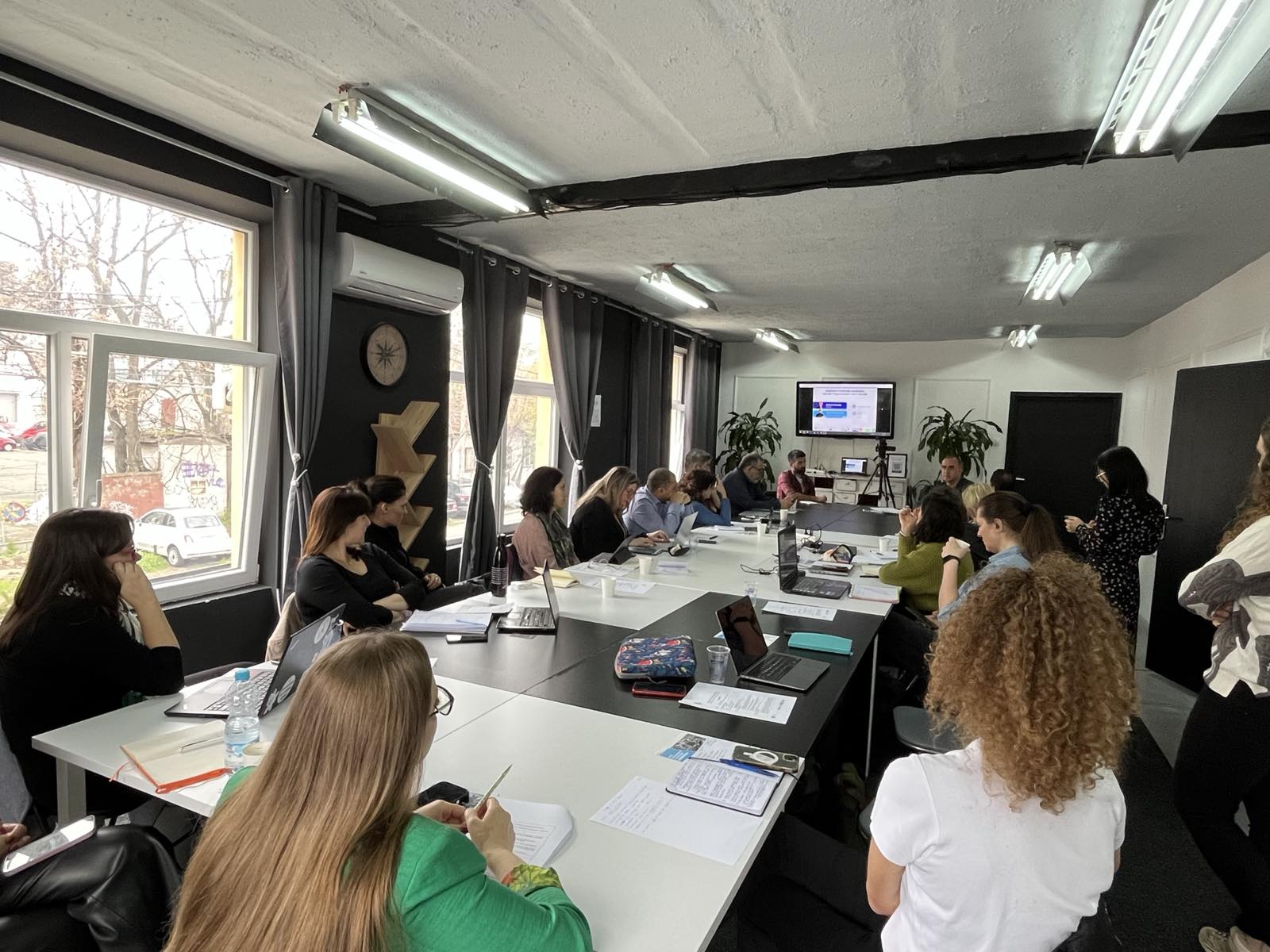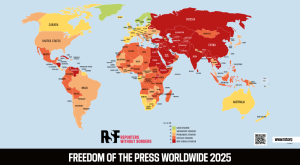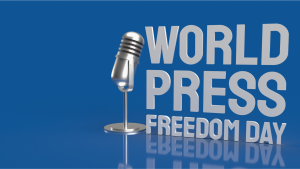The third ‘Stand Up for Journalism’ workshop was dedicated to the online safety of journalists and took place in Belgrade, Serbia, on 31 March – 1 April 2025. The European Federation of Journalists (EFJ) and the Independent Journalists’ Association of Serbia (NUNS) organised this event to support journalists’ organisations in addressing the rising threats journalists face, particularly online harassment and legal protections in the digital age. It was attended by 30 union representatives from 16 countries.
One of the key topics was the increasing danger journalists face on social media platforms in Europe, exacerbated by the evolving digital media landscape. While social media provides journalists with a wide reach, it also exposes them to heightened risks, including threats and smear campaigns.
The workshop examined legal frameworks designed to protect journalists at both local and European levels. Valentina Grippo, General Rapporteur for Media Freedom at the Council of Europe, and Ana Toskić, Executive Director of Partners for Democratic Change Serbia, discussed how existing regulations can be strengthened.
“This year is a delicate situation. There is a need for journalists to work without fear. We have a different form of issues, like deepfakes and AI. I recommend providing guidelines for member states on prevention, protection, and prosecution, as well as promoting information and awareness,” said Valentina Grippo, General Rapporteur for Media Freedom at the Council of Europe.
Milica Vojinovic, Social Media Editor at the Serbian investigative journalism news outlet KRIK spoke about the digital safety measures that are at the heart of the organisational culture, given that coordinated online smear campaigns and threats are fairly common. “We warn candidates about the safety issues at the interview stage, and in the past we’ve lost good candidates because of it,” she explained.
Another key topic was AI-driven threats, including deepfake videos and coordinated disinformation campaigns. Experts like Javier Luque Martinez from IPI discussed how journalists can better protect themselves against AI-generated attacks while also leveraging AI tools for digital safety.
The final sessions of the workshop emphasised the importance of collaboration among unions, media organisations, and digital platforms to improve journalist protections. Discussions focused on advocating for stronger national regulations, using recent EU legislation such as the Digital Services Act (DSA) and the European Media Freedom Act (EMFA), in a workshop led by Elodie Vialle. A Virtual Reality (VR) exercise led by Monika Kutri from the Croatian Journalists’ Association (CJA) allowed participants to practice digital safety measures as if they were on the field.
This workshop was held during a time of civil unrest in Serbia, with student-led anti-corruption protests taking place.
This workshop was the third in a series of 5 workshops organised by the Stand Up for Journalism project.
Source: EFJ




